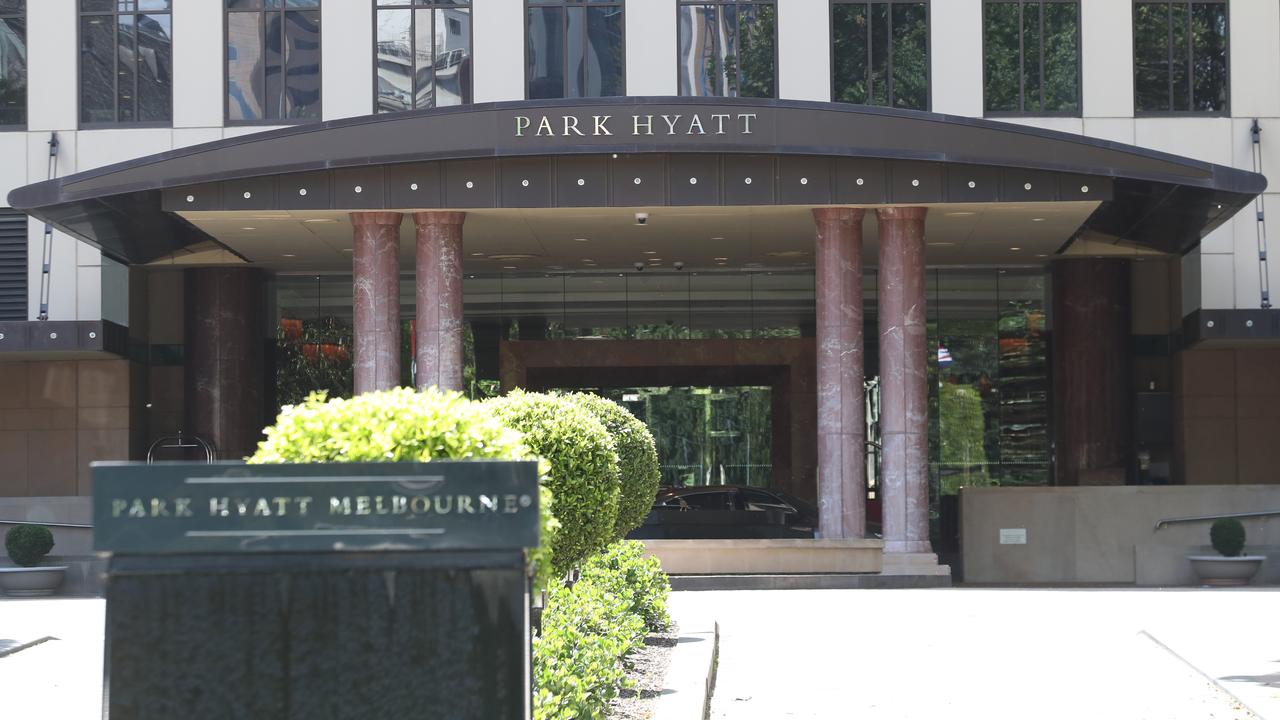Rio’s London investors get lesson on Aussie tax breaks
Mining giant Rio Tinto has given its London investors a lesson on Aussie tax breaks as former WA treasurer Ben Wyatt warned of franking credit waste in ditching its dual listing.

Business
Don't miss out on the headlines from Business. Followed categories will be added to My News.
Rio Tinto directors have defended secrecy around tax affairs and highlighted the value of about $14.2bn in franking credits on its balance sheet to Australian self-funded retirees at the company’s annual general meeting in London.
Under pressure from activist hedge fund Palliser Capital to conduct a transparent review of its dual-listed structure, the Rio board reiterated its view that unification would lead to tax costs in “mid-single digit” billions of dollars and not be in the best interest of shareholders.
Palliser chief investment officer James Smith told the meeting “we think the board owes us a transparent and independent review”.
Rio and Palliser are at odds over the costs and other key aspects of ditching the mining giant’s main London listing because its shares trade at a higher premium on the ASX.
London shareholders voted on a Palliser motion calling for an independent review, but the result will not be known until Australian shareholders have a chance to vote on May 1.
The Rio board reviewed unification in 2024, but did not release its internal findings to shareholders.
Rio has said the review found unification was not justified given the associated tax bill and what it saw as the wastage of billions of dollars in franking credits.
Mr Smith told the meeting that the dual listing had created a value drag of about $US50bn ($79bn) from an inability to use equity in acquisitions over the past 30 years, and that unification could release up to $US25bn in value.
The Palliser motion requires a 75 per cent majority of PLC (London) and Australian shareholders to pass, with the result to hinge on the London vote given 77 per cent of shareholders own the PLC stock.
Under the Rio structure in place since 1995, all profits and assets are shared between the London and Australian companies and shareholders are treated equally.
However, the ASX-listed shares have traded at a premium attributed to franking credits, unique to Australia’s dividend imputation system.
“The resolution is not a resolution to unify. It is a resolution to do an independent review and make that information available for all shareholders,” Mr Smith, who worked at Elliott Management when it was instrumental in the unification of BHP’s listings in the UK and Australia, said. BHP is now primary listed on the ASX.
“There’s a famous saying, sunlight encourages good behaviour, and we think that’s of relevance.”
Rio director Sharon Thorne said the board’s 2024 dual listing review – conducted with help from Goldman Sachs, JPMorgan and EY – was based on “very commercially sensitive” information on the likely tax implications of unification.
“The tax position is very complex, and we shouldn’t underestimate it. Rio is a huge global company with operations in many countries around the world, and we’ve been investing in countries outside Australia to provide future growth for our shareholders,” she said.
“And most of those assets outside Australia are owned by PLC, and it’s a very difficult structure to BHP.”
Former Western Australian treasurer Ben Wyatt, who has been on the Rio board since 2021 and also sits on the board of Woodside Energy, said franking credits were a big part of why the ASX stock traded at a premium.
Mr Wyatt said the purpose of franking credits, introduced by the Hawke-Keating government in 1987, was to make sure that dividends paid to Australian tax residents were not taxed twice.
He said the franking credits were of huge value to Australian shareholders and to the nation’s self-funded retirees.
“A unified Ltd structure would introduce a lot of shareholders … who aren’t Australian tax residents. Those shareholders would get the dividend with the franking credit. But, of course, there’s no value to those who aren’t Australian tax residents,” he said.
Mr Wyatt said this meant the Rio sizeable franking credit balance – about $US9bn – would run down much faster and couldn’t be distributed over the long term to the benefit of the company and Australian shareholders.
Originally published as Rio’s London investors get lesson on Aussie tax breaks



